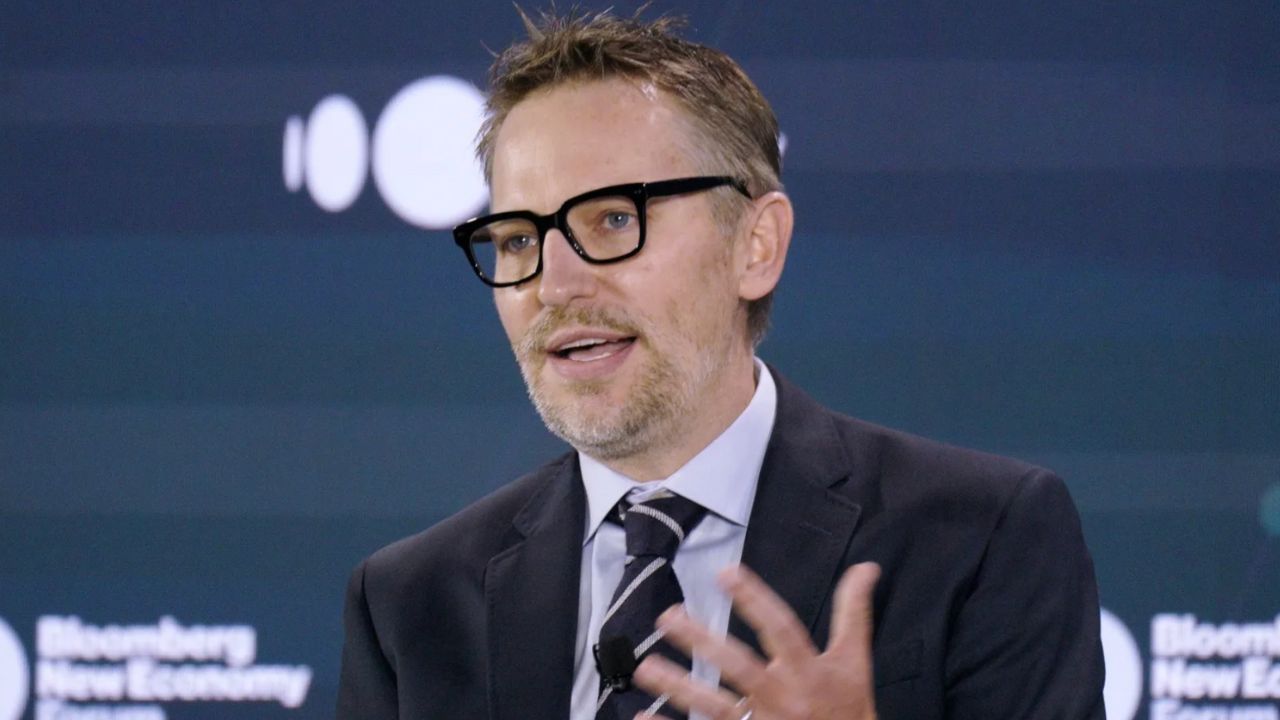LinkedIn CEO Ryan Roslansky: AI Will Disrupt Jobs, But Those Who Reskill Will Lead
Editor: Chandan M
Published on: June 26, 2025, 2:54 p.m.

As artificial intelligence continues to reshape industries and redefine work, LinkedIn CEO Ryan Roslansky has delivered a sharp and timely assessment of the labor market’s future. In a recent media interaction and subsequent interviews, Roslansky declared that AI-driven job disruption is not just a risk, but a certainty, and that the only viable path forward for professionals is rapid and continuous reskilling. “Yes, AI will disrupt jobs — but it’s also an invitation to evolve. The real winners will be the ones who reskill fast,” he stated, framing the current technological shift as both a challenge and an opportunity. The Reality of Job Disruption The pace at which AI tools such as language models, generative AI platforms, process automation systems, and robotics are being deployed has accelerated rapidly in the past 24 months. While AI is enabling significant productivity gains and innovation across sectors, it is also rendering certain traditional roles obsolete — particularly those involving repetitive or rules-based tasks. Industries such as customer service, basic data entry, document review, telemarketing, and even certain coding tasks are increasingly being automated. Roslansky acknowledged that while automation can improve efficiency, it will also displace workers who fail to evolve. “There’s going to be a ton of disruption. There’s going to be a ton of uncertainty. But that’s where opportunity begins — if we act.” The Shift From Degrees to Skills Roslansky emphasized that skills are becoming more important than formal degrees in the hiring process. Traditional qualifications are no longer enough in a world where the nature of work is rapidly evolving. “The shift from jobs to skills is accelerating,” Roslansky said. “Employers are hiring for what you can do, not just what you studied.” LinkedIn’s internal data reflects this trend: AI-related job postings have grown by six times over the last year. The number of LinkedIn users adding AI-related skills to their profiles has increased by twenty times. Emerging job roles such as AI operations manager, prompt engineer, synthetic data specialist, and automation ethicist are gaining traction globally. Reskilling: The Defining Factor According to Roslansky, reskilling is no longer optional — it is essential. He urged individuals to focus on acquiring high-demand, future-oriented skills such as: Data analysis and visualization Machine learning fundamentals AI prompt design and ethical use of algorithms Cloud-based collaboration tools Cybersecurity fundamentals Soft skills like adaptability, critical thinking, and digital communication LinkedIn has responded to this challenge by expanding its LinkedIn Learning offerings. The platform now features curated pathways to help users upskill in AI, cloud computing, business transformation, and project leadership. These learning paths are increasingly being integrated with Microsoft Copilot and GitHub tools to provide hands-on exposure. Impact on Employers and Policy Makers Roslansky also called upon employers, governments, and educational institutions to act quickly and decisively. He urged companies to shift toward skills-based hiring and provide in-house learning programs. Governments, he said, must prioritize access to digital infrastructure, vocational training, and online learning tools to ensure inclusion. Failure to act, he warned, would lead to widespread inequality and unemployment, particularly in low and middle-income economies. Global Implications In emerging economies such as India, Brazil, Indonesia, and parts of Africa, AI offers a paradox — it threatens existing employment models but also presents a powerful opportunity for digital inclusion. Roslansky believes that AI can democratize innovation, enabling individuals from remote towns and underrepresented communities to build globally relevant solutions if they are equipped with the right tools and training. “You don’t need a Silicon Valley office or a Stanford degree to create value with AI. You can be in Lucknow or Lagos and still lead.” Conclusion The message from LinkedIn’s CEO is clear: AI will replace jobs, but not necessarily workers — unless they fail to adapt. In a market that values agility, creativity, and lifelong learning, the ability to pivot and acquire new skills has become the most valuable professional asset. “This is the future of work. It’s not static. It’s dynamic, skill-driven, and globally interconnected. Those who invest in reskilling now will lead the workforce of tomorrow.” Editor’s Note: For those looking to upgrade their skills in AI and emerging technologies, LinkedIn Learning, Coursera, and edX offer a range of industry-relevant courses. Many are available free or at subsidized costs through partnerships with global employers.